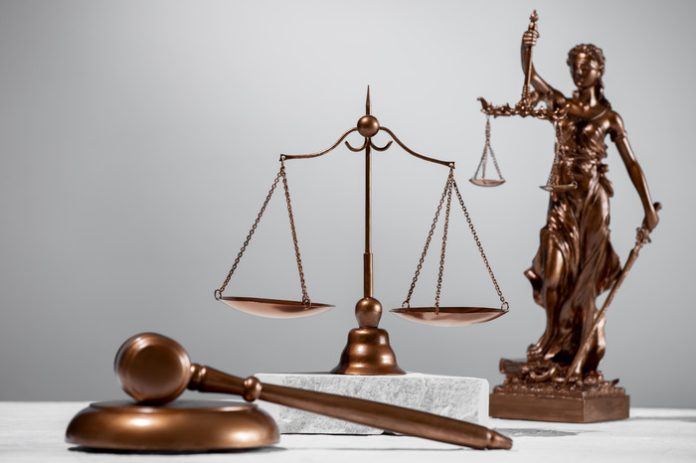Abstract
The doctrine of justiciability of fundamental rights occupies a central place in constitutional jurisprudence, reflecting the judiciary’s role as the ultimate guardian of individual liberties. In the Indian context, the enforcement of fundamental rights under Part III of the Constitution through Articles 32 and 226 underscores their sacrosanct and enforceable character. This study seeks to provide a nuanced understanding of how justiciability shapes the lived reality of constitutional rights while assessing its future trajectory in strengthening democratic governance and social justice.
Introduction
Any democratic society’s cornerstone is the upholding of basic rights. Fundamental rights are the foundation of a democratic system. The framers of the Indian Constitution granted its inhabitants six (initially seven) fundamental rights, each based on the principle of equality and liberty, taking into account the interests of all sectors of Indian society. The primary objective behind these rights is to secure basic freedoms. Enshrined in Part III of the Constitution, fundamental rights are not absolute and are subject to reasonable restrictions in the interest of sovereignty, security, and public order.
Understanding Fundamental Rights
Fundamental rights are legal protections provided to preserve the liberty, dignity, and freedoms of individuals. Their enforceability through judicial processes such as courts or tribunals makes them justiciable. Justiciability determines whether citizens can approach judicial bodies for protection, reparation, or compensation when their rights are violated.
Doctrine of Horizontal and Vertical Application
- Vertical Application: Enforcing fundamental rights against the State or government authorities.
- Horizontal Application: Enforcing fundamental rights against private individuals and entities.
Significance of Fundamental Rights
- Protection of Dignity and Liberty – Ensures autonomy and safeguards individuals from unwanted interference.
- Legal Remedies – Article 32, called the “heart and soul” of the Constitution, enables citizens to directly approach the Supreme Court or High Courts for enforcement of rights.
- Guardians of Democracy – Empower citizens by granting non-negotiable rights, thereby strengthening democratic participation.
Historical Development of Fundamental Rights
During the pre-independence era, leaders like Mahatma Gandhi emphasized civil liberties and individual rights as part of the freedom movement. The Constitution’s drafters, led by Dr. B.R. Ambedkar, recognized the necessity of safeguarding individual rights against both state excesses and social inequalities.
Constitutional and Legal Framework of Fundamental Rights
Part III of the Indian Constitution (Articles 12–35) lays down the framework:
- Right to Equality (Articles 14–18) – Equality before law, abolition of untouchability, prohibition of discrimination.
- Right to Freedom (Articles 19–22) – Freedom of speech, assembly, association, movement, and personal liberty (with reasonable restrictions).
- Right Against Exploitation (Articles 23–24) – Prohibition of forced labor, human trafficking, and child labor in hazardous industries.
- Right to Freedom of Religion (Articles 25–28) – Freedom of conscience, practice, and propagation of religion.
- Cultural and Educational Rights (Articles 29–30) – Protection of minority rights to establish and administer educational institutions.
- Right to Constitutional Remedies (Article 32) – Empowering the judiciary to issue writs for enforcement of rights.
- Right to Property (Article 31) – Originally a fundamental right, reclassified as a legal right by the 44th Amendment (1978).
Landmark Case Studies
- Keshavananda Bharati v. State of Kerala (1973)
Established the “Basic Structure Doctrine” – Fundamental Rights form part of the Constitution’s inviolable core. - Shah Bano Case (1985)
Upheld maintenance rights of a divorced Muslim woman under Section 125 CrPC, affirming gender equality and the right to dignity under Article 21. - Navtej Singh Johar v. Union of India (2018)
Decriminalized consensual homosexual acts, affirming dignity, privacy, and equality (Article 14).
Contemporary Issues in Justiciability
- LGBTQ+ Rights – Recognition of same-sex marriage, protection from discrimination.
- Media and Freedom of Expression – Balancing regulation of online content with free speech.
- Right to Privacy – Reconciling personal privacy with state surveillance and data protection.
- Right to Education – Ensuring equitable access to quality education, highlighted during the pandemic.
Policy Implications
- Enact comprehensive data protection laws with an independent authority and clear limits on surveillance.
- Develop content moderation guidelines that balance free speech with responsible platform management.
- Launch digital literacy initiatives to promote responsible online behavior.
- Pass anti-discrimination laws explicitly safeguarding LGBTQ+ rights, including marriage equality.
- Invest in digital infrastructure and improve quality education, especially in marginalized areas.
Conclusion
Fundamental rights are not luxuries but the very foundation of justice and equality in a democratic society. They ensure respect, liberty, and the pursuit of happiness while safeguarding individual freedoms against state excesses. Although subject to reasonable restrictions in the interest of sovereignty, security, and public order, their enforceability through judicial mechanisms makes them central to constitutional governance. Ensuring the continued vitality of these rights is essential for building a fair and equitable society.
References
- Jain, M.P., Indian Constitutional Law, Wadhwa & Co, 2018.
- Basu, D.D., Constitutional Law of India, Lexis Nexis, 2021.
FAQs
Q1. Are all fundamental rights equally justiciable?
No. Civil and political rights (equality, freedom, protection against exploitation) are directly enforceable. Socio-economic rights (education, health, livelihood) depend on state resources and policies, though courts sometimes interpret DPSPs to indirectly enforce them.
Q2. What are the limitations to the justiciability of fundamental rights?
- Reasonable restrictions (e.g., on free speech under Article 19).
- Emergency provisions (Article 352), which can suspend certain rights.
- Judicial interpretation balancing individual rights with collective interests.
Also Read:
Rights of undertrial prisoners in India
How To Send A Legal Notice In India


